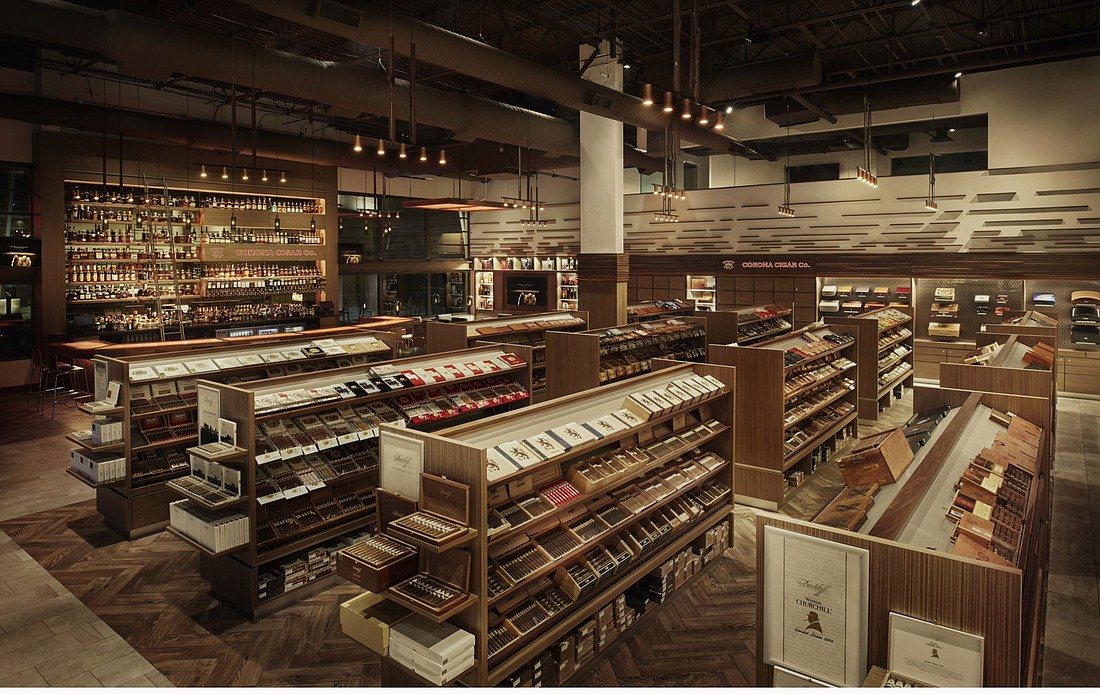- April 25, 2024
-
-
Loading

Loading

When downtown property owner Lou Donato approached Jeff Borysiewicz about opening a cigar bar in the former Sur La Table space at Lemon Avenue and First Street, Borysiewicz thought it sounded like a great fit.
Borysiewicz owns Corona Cigar Co., a chain of cigar stores that opened a Tampa location in 2015. When he looked at downtown Sarasota, he saw a vibrant city center with a mix of businesses. He thought a cigar bar could help contribute to that vibrancy.
At a community workshop on Aug. 18, however, half a dozen downtown residents challenged his beliefs. Some questioned whether another establishment serving liquor was appropriate. Others painted an ugly picture of downtown for Borysiewicz.
“I’m not sure how well you know Sarasota,” said John Bordeaux, a resident of The Mark condominium. “I live downtown, and I’ve noticed the clientele that frequent the bars downtown — these are the $3 happy hour beer guys, the guys who get arrested for assault and battery on Main Street at 2 in the morning. These aren’t the guys lined up to buy $50 cigars and $50 single malts, OK?”
Linda Sloan is the type of downtown resident Borysiewicz might have envisioned. She said she enjoys cigars and bourbon and thought the Corona Cigar proposal looked fun. But she was skeptical about the prospect of any liquor-selling establishment moving into the Lemon Avenue site because she feared there were too many of those already.
“Is a bar really the right thing for this space?” Sloan said. “And again, this isn’t about the particular proposal before us. It’s really about the broader issue.”
As Sloan indicated, the pushback to the Corona Cigar Co. is indicative of a larger conversation that can be traced back years.
Downtown residents — and occasionally merchants, property owners and city officials — have expressed concerns about the mixture of businesses in the area.
To obtain a liquor license without an accompanying requirement to derive at least half your income from food sales and provide at least 150 seats, a business must obtain a conditional use permit from the city. Those proposals have often been the subject of public debate. In 2015, the city denied plans for a bar called Paddy Wagon Irish Pub on Main Street, citing concerns about noise, crime and the proliferation of bars downtown.
One year later, similar concerns arose over an application associated with the bar Cask and Ale on Main Street. At the same time, a different group of downtown residents wrote letters of support, calling the business a welcome addition. The City Commission approved the application, and Cask and Ale remains open today.
Since that vote, the city has approved permits related to alcohol sales for 99 Bottles on Second Street and Brewster’s Tavern and Raffurty’s on Main Street.
Between bars and restaurants, there are 17 businesses with full liquor licenses in the 1300, 1400 and 1500 blocks of Main Street. There are four more on Lemon Avenue between First Street and State Street; Corona Cigar Co. would be the fifth.
Debates over downtown liquor sales might be intensifying because of an influx of new residents, some of whom are closer to commercial properties. An alley separates the 157 residences in The Mark from the 1400 block of Main Street, the home of bars including Gator Club, Brewster’s and Joe’s. Some residents at The Mark have raised complaints about those bars, urging the city to establish more stringent noise regulations.
Given the current conditions, 100 Central condominium resident Pat O’Brien said there’s reason to be skeptical about any new bar. Beyond limitations on hours of operation and noise above and beyond the standards outlined in the city code, residents including O’Brien express concern that even an innocuous-seeming bar could become problematic.
And even if the business itself isn’t creating a problem, O’Brien said he worried replacing a kitchenware store with a bar could contribute to a more generalized sense of imbalance downtown.
“My concern is … the city is giving up a quality retail space,” O’Brien.
Ian Black, a supporter of the Corona Cigar proposal, said he moved into The Mark because he wants to be in the center of the city’s most intense district.
“We live there because we enjoy the vibrancy and vitality of the area,” Black said.
The same is true for Ernie Ritz, who lives across the street from the proposed Lemon Avenue storefront. He noted that he’s already neighbors with Bevardi’s Salute and Mattison’s City Grille, two restaurants that serve liquor and frequently feature live music. For him, it’s a good thing.
“I enjoy all of that music,” Ritz said. “I enjoy the laughter. I’m used to it.”
Objections to downtown bars have often drawn pushback from supporters who are less consistent in engaging with their local government. In 2020, before the city approved a conditional use application for Brewster’s, resident Raymmar Tirado expressed frustration with the uncertainty bar proprietors must navigate before they can obtain a liquor license. Although some downtown residents feared downtown was in danger of being overrun by bars, Tirado said there still remained limited nightlife options in Sarasota.
“It’s silly that we can’t create an area for young people to come and hang out downtown that isn’t a fine dining restaurant or uppity spot mostly intended for the older demographic,” Tirado said.
Borysiewicz, meanwhile, was undeterred. He said he understood why people might be concerned and that he was intent on being a good neighbor. Still, he thought most of the fears came from people who didn’t really understand the nature of his business, which he said derives about 60% of its income from retail sales.
Given the challenges retailers and restaurants are facing, he said he hoped the city would continue to embrace businesses that contribute to an active downtown — regardless of whether or not a liquor license might be attached.
“We’re here to bring something positive to the community,” Borysiewicz said.